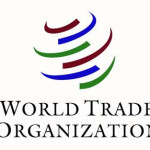- Settore: Government
- Number of terms: 7177
- Number of blossaries: 0
- Company Profile:
The World Trade Organization (WTO) deals with the global rules of trade between nations. Its main function is to ensure that trade flows as smoothly, predictably and freely as possible.
In Doha Round agriculture (available for all countries): would have smaller tariff cuts than from the formula, but with quotas allowing imports at lower tariffs (tariff quotas) to provide some access to the market.
Industry:Economy
Four issues introduced to the WTO agenda at the December 1996 Ministerial Conference in Singapore: <b>trade and investment, trade and competition policy, transparency in government procurement</b>, and <b>trade facilitation.</b>
Industry:Economy
In Doha Round agriculture: products for which developing countries are to be given extra flexibility in market access for food and livelihood security and rural development.
Industry:Economy
Temporary increase in import duty to deal with import surges or price falls, under provisions that are special to the Agriculture Agreement.
Industry:Economy
Meetings of WTO councils and committees focusing only on the Doha Development Agenda negotiations.
Industry:Economy
A tariff rate charged as fixed amount per quantity such as $100 per ton.
Industry:Economy
Measures dealing with food safety and animal and plant health -- sanitary: for human and animal health; phytosanitary: for plants and plant products
Industry:Economy
In Doha Round agriculture: a tool that will allow developing countries to raise tariffs temporarily to deal with import surges or price falls.
Industry:Economy
There are two general types of subsidies: export and domestic. An export subsidy is a benefit conferred on a firm by the government that is contingent on exports. A domestic subsidy is a benefit not directly linked to exports.
Industry:Economy
In textiles and clothing, when an exporting country transfers part of a quota from one product to another restrained product.
Industry:Economy
